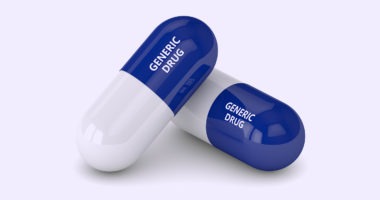Immuno-Oncology: The Rising Star in the Pharmaceutical Market
Immuno-oncology is a hot area in the pharmaceutical market, led by recent potential blockbuster product introductions by Bristol-Myers Squibb and Merck & Co. and pipeline contenders by other pharmaceutical majors. So which companies stand to reap the benefit, and where do opportunities reside?DCAT Value Chain Insights (VCI) examines the latest developments.
Merck’s Keytruda (pembrolizumab) and Bristol-Myers Squibb’s Opdivo (nivolumab) are two leading biologics in the immuno-oncology market, and Pfizer, AstraZeneca, Roche, and Merck KGaA are also seeking to be contenders with smaller biopharmaceutical companies also seeking a piece. DCAT Value Chain Insights (VCI) examines the commercial potential and recent deal-making in the immuno-oncology market.
Looking at the pharmaceutical majors
Bristol-Myers Squibb. Opdivo is a potential blockbuster immuno-oncology drug for Bristol-Myers Squibb. A recent Thomson Reuters analysis estimated 2019 sales of $5.68 billion. The drug was first approved in Japan in 2014, but it is the US market, where the potential is high, according to the Thomson Reuters analysis. The drug was approved in the US in late December 2014 for treating unresectable or metastatic melanoma and was launched in February 2015. In the US, Opdivo is approved for the treatment of patients with unresectable or metastatic melanoma and disease progression following Yervoy (ipilimumab) and, if BRAF V600 mutation positive, a BRAF inhibitor. In March 2015, Opdivo received its second US Food and Drug Administration (FDA) approval for the treatment of patients with metastatic squamous non-small cell lung cancer with progression on or after platinum-based chemotherapy.
In June 2015, the European Commission (EC) approved Opdivo for treating advanced (unresectable or metastatic) melanoma in adults, regardless of BRAF status. The EC later approved Bristol-Myers Squibb’s Nivolumab BMS (nivolumab) for treating locally advanced or metastatic squamous non-small (SQ) cell lung cancer (NSCLC) after prior chemotherapy. In the European Union, Bristol-Myers Squibb submitted two separate marketing authorization applications, one in advanced melanoma under the tradename Opdivo and one for SQ NSCLC under the Nivolumab BMS tradename in order to accelerate availability of nivolumab in both indications. The goal is to have these two marketing authorizations “reconciled” into a single marketing authorization, under the Opdivo brand name toward the end 2015.
Opdivo is a programmed death-1 (PD-1) immune checkpoint inhibitor that has received approval from the FDA as a monotherapy in two cancer indications: unresectable or metastatic melanoma and disease progression following Yervoy (ipilimumab) and, if BRAF V600 mutation positive, a BRAF inhibitor, and for metastatic squamous non-small cell lung cancer with progression on or after platinum-based chemotherapy. In July 205, the European Commission approved Nivolumab BMS for the treatment of locally advanced or metastatic SQ NSCLC after prior chemotherapy. Bristol-Myers Squibb has a broad, global development program to study Opdivo in multiple tumor types consisting of more than 50 trials, as monotherapy or in combination with other therapies, in which more than 8,000 patients have been enrolled worldwide.
Earlier this month, the US Food and Drug Administration (FDA) accepted for filing and review Bristol-Myers Squibb’s supplemental biologics license application (sBLA) for Opdivo for treating previously treated patients with non-squamous (NSQ) non-small cell lung cancer (NSCLC). This sBLA seeks to expand the current indication for Opdivo in patients with previously treated squamous (SQ) NSCLC. The projected FDA action date is January 2, 2016. The agency has also granted this application priority review, and Opdivo breakthrough therapy designation for this indication. Breakthrough therapy designation requires preliminary clinical evidence that demonstrates the drug may have substantial improvement on at least one clinically significant endpoint over available therapy.
In August 2015, Bristol-Myers Squibb and the QIMR Berghofer Medical Research Institute, a translational research institute focused on cancer, infectious diseases, and mental health have signed a research collaboration and license agreement to discover therapeutic antibodies against an undisclosed immuno-oncology target. Bristol-Myers Squibb will be solely responsible for clinical development and commercialization of antibodies discovered through the collaboration.
Merck & Co. Merck & Co.’s Keytruda is positioned as a potential blockbuster for Merck with 2019 projected sales of $3.466 billion, according to a recent Thomson Reuters analysis. Keytruda was approved in the US in 2014 for the treatment of patients with unresectable or metastatic melanoma and disease progression following ipilimumab and, if BRAF V600 mutation positive, a BRAF inhibitor. In July 2015, the EC approved Keytruda for treating advanced (unresectable or metastatic) melanoma in adults. Merck also received FDA’s breakthrough therapy designation for Keytruda for treating advanced NSCLC. In June 2015, the FDA accepted Merck’s supplemental biologics license application (sBLA) for Keytruda for treating advanced NSCLC that has progressed on or after platinum-containing chemotherapy and an FDA-approved therapy for EGFR or ALK genomic tumor aberrations, if present. The FDA granted priority review with a target action, date of October 2, 2015; the sBLA will be reviewed under the FDA’s Accelerated Approval program.
In August 2015, the FDA accepted for review a supplemental biologics license application (sBLA) for Merck’s Keytruda. Merck is seeking approval for Keytruda, at the currently approved dose of 2 mg/kg every three weeks, for the first-line treatment of unresectable or metastatic melanoma patients. The FDA granted priority review with a target action, date of December 19, 2015. Additionally, the FDA has extended the action date for a separate sBLA for Keytruda for the treatment of patients with ipilimumab-refractory advanced melanoma. The new action date is now December 24, 2015. Keytruda is currently indicated in the United States at a dose of 2 mg/kg administered as an intravenous infusion over 30 minutes every three weeks for the treatment of patients with unresectable or metastatic melanoma and disease progression following ipilimumab and, if BRAF V600 mutation positive, a BRAF inhibitor.
Keytruda is a humanized monoclonal antibody that blocks the interaction between PD-1 and its ligands, PD-L1 and PD-L2. By binding to the PD-1 receptor and blocking the interaction with the receptor ligands, Keytruda releases the PD-1 pathway-mediated inhibition of the immune response, including the anti-tumor immune response. Merck is advancing a broad clinical development program for Keytruda with more than 100 clinical trials across more than 30 tumor types and enrolling more than 16,000 patients both as a monotherapy and in combination with other therapies.
Merck also has additional partnerships for its immuno-therapy pipeline. The pacts involve the clinical development of Keytruda in additional cancer types. Merck and Amgen are evaluating the efficacy and safety of talimogene laherparepvec, Amgen’s investigational oncolytic immunotherapy, in combination with Merck’s Keytruda in a Phase I trial for treating metastatic squamous cell carcinoma of the head and neck. In addition, the companies announced that a global, randomized Phase III trial evaluating the combination in patients with regionally or distantly metastatic melanoma is being initiated. Talimogene laherparepvec is an investigational oncolytic immunotherapy designed to selectively replicate in tumors (but not normal tissue) and to initiate an immune response against cancer cells.
Merck also has a collaboration with Tesaro Inc., an oncology-focused biopharmaceutical company, to evaluate the combination of Tesaro’s small molecule, niraparib, plus Merck’s Keytruda in a Phase I/II clinical trial to evaluate the preliminary safety and efficacy of niraparib plus Keytruda in patients with triple negative breast cancer or ovarian cancer. This trial will be conducted by Tesaro and Merck, through a subsidiary, and is expected to begin by the end of 2015. Merck is also partnered with NanoString Technologies, Inc., a provider of life science tools for translational research and molecular diagnostic products, have to develop an assay that will optimize immune-related gene expression signatures and evaluate the potential to predict benefit from Merck’s Keytruda (pembrolizumab), in multiple tumor types. Merck is also partnered with Dynavax Technologies Corporation to investigate the potential synergistic effect of combining immunotherapies from both companies’ pipelines: Merck’s Keytruda and its investigational anti-interleukin-10 (anti-IL-10) immunomodulator, MK-1966, with Dynavax’s investigational toll-like receptor 9 (TLR9) agonist, SD-101.
AstraZeneca. AstraZeneca’s key immuno-onoclogy drug candidate is MEDI4736, an anti-programmed cell death ligand 1 (PD-L1) mAb being studied as a monotherapy and in combination with other immuno-oncology and small-molecule therapies across different tumor types and tumor biology. MEDI4736 is being studied with another mAb, tremelimumab, in both PD-L1 positive and PD-L1 negative advanced non-small cell lung cancer (NSCLC) patients It is also being studied in combination with other immuno-oncology and small molecules in melanoma and lung cancer. AstraZeneca recently presented data on the use of MEDI4736 in combination with the following: Novartis’ BRAF (dabrafenib) and/or MEK (trametinib) inhibitors in patients with advanced melanoma; Iressa (gefitinib), AstraZeneca’s epidermal growth factor receptor (EGFR) mutation-positive tyrosine kinase inhibitor (TKI) in advanced NSCLC; and AZD9291, AZD6094, or selumetinib in EGFR-mutant lung cancer patients who have progressed following therapy with an EGFR-TKI. AstraZeneca is also developing aPD-L1 companion diagnostic test with Ventana Medical Systems and MedImmune as a biomarker to predict response to MEDI4736.
Also in 2015, AstraZeneca and Eli Lilly and Company formed a clinical trial collaboration to evaluate the safety and preliminary efficacy of AstraZeneca’s MEDI4736, in combination with Eli Lilly’s Cyramza (ramucirumab), a vascular endothelial growth factor (VEGF) VEGF Receptor 2 antiangiogenic cancer medicine. The planned study will assess the combination as a treatment for patients with advanced solid tumors.
Earlier this year, AstraZeneca formed an exclusive $450 million collaboration agreement with Celgene Corporation, for the development and commercialization of AstraZeneca’s investigational immunotherapy, MEDI4736 as both as monotherapy and in combination with other AstraZeneca and Celgene potential and existing cancer medicines. Also, AstraZeneca partnered in November 2014 with Pharmacyclics, Inc. (which recently was acquired by AbbVie) and Janssen Research & Development, LLC for a clinical trial collaboration to evaluate the efficacy and safety of AstraZeneca’s MEDI4736, in combination with Imbruvica (ibrutinib), an oral Bruton’s tyrosine kinase inhibitor, co-developed by Pharmacyclics and Janssen and commercialized outside the US by Janssen affiliates. The study will assess the combination as a treatment for patients with hematological cancers, including diffuse large B-cell lymphoma and follicular lymphoma, which are investigational uses for both compounds.
In August 2015, AstraZeneca formed a clinical trial collaboration with Peregrine Pharmaceuticals, Inc. a biopharmaceutical company based in Tustin, California, to evaluate the safety and efficacy of Peregrine’s investigational phosphatidylserine (PS)-signalling pathway inhibitor, bavituximab, in combination with AstraZeneca’s investigational anti-PD-L1 immune checkpoint inhibitor, durvalumab (MEDI4736). The planned Phase I/Ib trial will evaluate the safety and efficacy of bavituximab in combination with durvalumab in multiple solid tumors.
AstraZeneca and Peregrine will collaborate on a non-exclusive basis, to evaluate the combination of bavituximab and durvalumab with chemotherapy as a potential treatment in various solid tumors. The Phase I part of the trial is expected to establish a recommended dose regimen for the combination and the Phase Ib part of the trial will assess the safety and efficacy of the investigational combination. The initial trial will be conducted by Peregrine.
Bavituximab and durvalumab are investigational immunotherapies with different mechanisms that assist the body’s immune system in fighting cancer. Bavituximab is an investigational chimeric monoclonal antibody tha targets and modulates the activity of phosphatidylserine, a highly immune-suppressive molecule expressed broadly on the surface of cells in the tumour microenvironment. The treatment increases activated T-cells in tumors and fights cancer by reversing the immunosuppressive environment that many tumors establish in order to proliferate. Durvalumab is a monoclonal antibody directed against programmed cell death ligand 1 (PD-L1).
Novartis. Key pipeline candidates in immuno-oncology for Novartis evolve around the development of chimeric antigen receptor T cell (CAR T) therapies in a variety of cancers, including lymphoma, multiple myeloma, and pancreatic cancer. Earlier this year, Novartis formed a major multiyear alliance with Aduro Biotech that is focused on the discovery and development of small-molecule cancer immunotherapies targeting the STING (Stimulator of Interferon Genes) pathway and launched a new immuno-oncology research group led by cancer vaccine expert Glenn Dranoff, MD. Under its deal with Aduro, Novartis made an upfront payment of $200 million to Aduro and an initial equity investment in the company for $25 million, with a commitment for another $25 million equity investment at a future date. Aduro will lead commercialization activities and book sales in the US, with Novartis leading commercialization and recognizing sales in the rest of the world. The companies will share in profits in the US, Japan, and major European countries. Novartis will pay Aduro a royalty for sales in the rest of the world.
STING is a signaling pathway that when activated is known to initiate broad innate and adaptive immune responses in tumors. Aduro’s small-molecule cyclic dinucleotides (CDN’s) have proven to generate an immune response in preclinical models that specifically attacks tumor cells. The addition of STING agonists adds to Novartis’ portfolio of immunotherapies. Currently the CART program, CTL019, is in Phase II clinical trials and checkpoint inhibitors targeting PD1, LAG3, and TIM3 are expected to enter the clinic in 2015.
Pfizer. In the area of immuno-oncology, earlier this year, Merck KGaA and Pfizer initiated a Phase III clinical trial for the companies’ investigational cancer immunotherapy, avelumab, to treat non-small cell lung cancer. The drug is part of the immunotherapy alliance that Pfizer and Merck KGaA formed in November 2014 under which the companies will collaborate on up to 20 high priority immuno-oncology clinical development programs, including combination trials. In 2014, Pfizer Inc. and Cellectis, a French company specializing in immunotherapy, formed a global strategic collaboration to develop CAR-Timmunotherapies in the field of oncology directed at select targets. Cellectis’ CAR-T platform technology provides a proprietary, allogeneic approach (using engineered T-cells from a single donor for use in multiple patients) to developing CAR-T therapies that is distinct from other autologous approaches (engineering a patient’s own T-cells to target tumor cells).
Roche. In the area of immune-oncology, Amgen and Roche formed a collaboration on a Phase Ib study to evaluate the safety and efficacy of talimogene laherparepvec, Amgen’s investigational oncolytic immunotherapy, in combination with Roche’s investigational anti-PDL1 therapy, atezolizumab (also known as MPDL3280A), in patients with triple-negative breast cancer and colorectal cancer with liver metastases. Talimogene laherparepvec is an investigational oncolytic immunotherapy designed to selectively replicate in tumors (but not normal tissue) and to initiate an immune response to target cancer cells.
The rationale for combining these two investigational agents is to activate an anti-tumor immune response with talimogene laherparepvec and to block inhibitory T cell checkpoints with atezolizumab, to potentially increase the anti-tumor activity relative to each agent alone. Amgen has initiated a comprehensive clinical development program for talimogene laherparepvec in metastatic melanoma, which includes combination studies with checkpoint inhibitors in patients with late-stage disease and monotherapy prior to surgery (neoadjuvant) in patients with resectable disease.
Other companies
Among smaller companies, Incyte Corporation formed a global collaboration agreement with Jiangsu Hengrui Medicine Co., Ltd., a Chinese pharmaceutical company, for developing and commercializing SHR-1210, an investigational anti-PD-1 monoclonal antibody in a deal valued up to $795 million. Under the deal, Incyte will acquire development and commercialization rights to SHR-1210 worldwide, with the exception of Mainland China, Hong Kong, Macau, and Taiwan, in exchange for an upfront payment of$25 million. The terms also include potential milestone payments of up to $770 million to Hengrui, consisting of $90 million for regulatory approval milestones, $530 million for commercial performance milestones, and $150 million based on clinical superiority. The terms also include tiered royalties to Hengrui on net sales of SHR-1210 in Incyte territories. Under the agreement, Incyte and Hengrui will assume all financial obligations associated with the development and commercialization of SHR-1210a in their respective territories.
MorphoSys AG, an antibody company, and Immatics Biotechnologies GmbH, a clinical-stage biopharmaceutical company, formed a strategic alliance in August 2015 to generate antibody-based therapeutics against multiple proprietary cancer antigens recognized by T cells. The collaboration agreement provides MorphoSys with access to several proprietary tumor-associated peptides (TUMAPs) discovered using Immatics’ XPRESIDENT platform to develol antibody-based therapeutics against these targets in a number of solid and hematological cancers.XPRESIDENT enables access to antibody targets associated with proteins that are present inside cancer cells. In return, Immatics will be provided with MorphoSys’ Ylanthia antibodies against a number of its TUMAPs, with proprietary development rights. The companies will pay each other milestones based on their respective development progress as well as royalties on marketed products.




